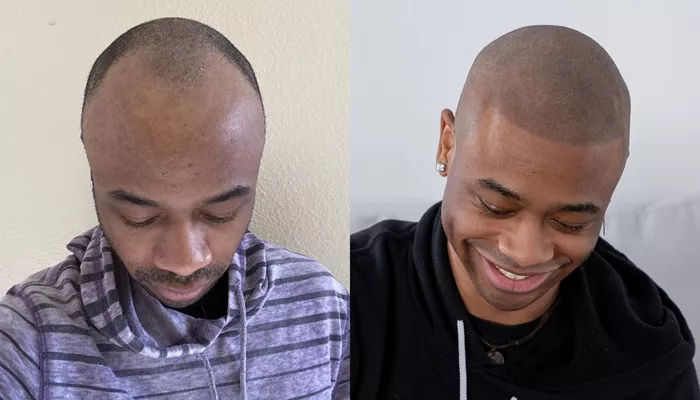As a hair restoration specialist, one of the most common questions I encounter is: *“How much does a hair transplant cost?”* The answer is nuanced, as pricing depends on multiple factors, from surgical techniques to geographic location. Below, I break down the key components shaping hair transplant costs in 2025, supported by clinical insights and market data.
Core Cost Structure
Hair transplant fees are primarily calculated per follicular unit (FU), with each unit containing 1–4 hairs. The formula is straightforward:
Total Cost = (Number of FUs × Price per FU) + Ancillary Fees
Price per FU:
Basic FUE (Follicular Unit Extraction): ¥8–¥12/FU
Advanced Techniques (e.g., Micro-Needle, DHI): ¥15–¥60/FU.
High-End Options (e.g., FGF Dual-Active Factor): Up to ¥60/FU for premium results.
Ancillary Fees:
Pre-op blood tests: ¥350–¥500.
Post-op medications (antibiotics, pain relief): ¥500–¥1,500.
Scalp health programs: Optional, ranging from ¥300–¥1,600.
Key Cost Determinants
Surgical Complexity and Graft Count
Minor Adjustments (e.g., hairline lowering): 500–600 FUs (¥6,000–¥8,000).
Moderate Thinning (e.g., crown restoration): 1,500–2,500 FUs (¥15,000–¥40,000).
Advanced Baldness (Norwood VI/VII): 3,500+ FUs (¥40,000–¥80,000).
Geographic Location
Tier 1 Cities (Beijing, Shanghai): ¥10–¥20/FU due to higher operational costs.
Tier 2/3 Cities: ¥5–¥15/FU, offering cost-effective alternatives.
Surgeon Expertise and Clinic Reputation
Senior Surgeons: Premium fees (¥2,000–¥10,000 extra) for specialized skills.
Chain Clinics (e.g., Kefayuan): Branded services at ¥12–¥20/FU vs. public hospitals (¥8–¥15/FU).
Specialized Procedures
Beard/ Eyebrow Transplants: ¥8,000–¥48,000 (technical precision required).
Body Hair Transplants (BHT): Higher costs due to graft adaptation challenges.
Hidden Costs and Considerations
Pre-Operative Care: Scalp detox or PRP therapy (¥300–¥1,280).
Post-Operative Maintenance: Medications like minoxidil/finasteride (¥200–¥1,000/month).
Revision Surgeries: 10–20% of patients require touch-ups, adding 20–50% to initial costs.
Cost-Saving Strategies
Opt for Tier 2 Cities: Comparable quality at 20–50% savings.
Seasonal Promotions: Clinics often offer discounts during holidays (e.g., 10–30% off).
Prioritize FUT for Large Sessions: Lower per-FU rates for extensive coverage.
Future Trends
Robotic FUE: Reduced human error, though initial costs remain high (¥20–¥30/FU).
Stem Cell Integration: Experimental techniques may drive prices upward post-2030.
Conclusion
In 2025, hair transplant costs remain highly variable, influenced by technical sophistication, geographic factors, and individual needs. While budget-friendly options exist (¥6,000–¥15,000 for minor procedures), advanced techniques and premium clinics justify higher investments (¥40,000–¥174,000) for natural, long-term results. As a practitioner, transparent communication about these variables is crucial to managing patient expectations and fostering trust.
For personalized estimates, always recommend a detailed scalp analysis and graft count assessment. Patients should prioritize accredited clinics over low-cost providers to mitigate risks of overharvesting or subpar outcomes.
Related topics:
How Much Does Hair Replacement Cost?
How Much Does a Restore Hair Transplant Really Cost?


